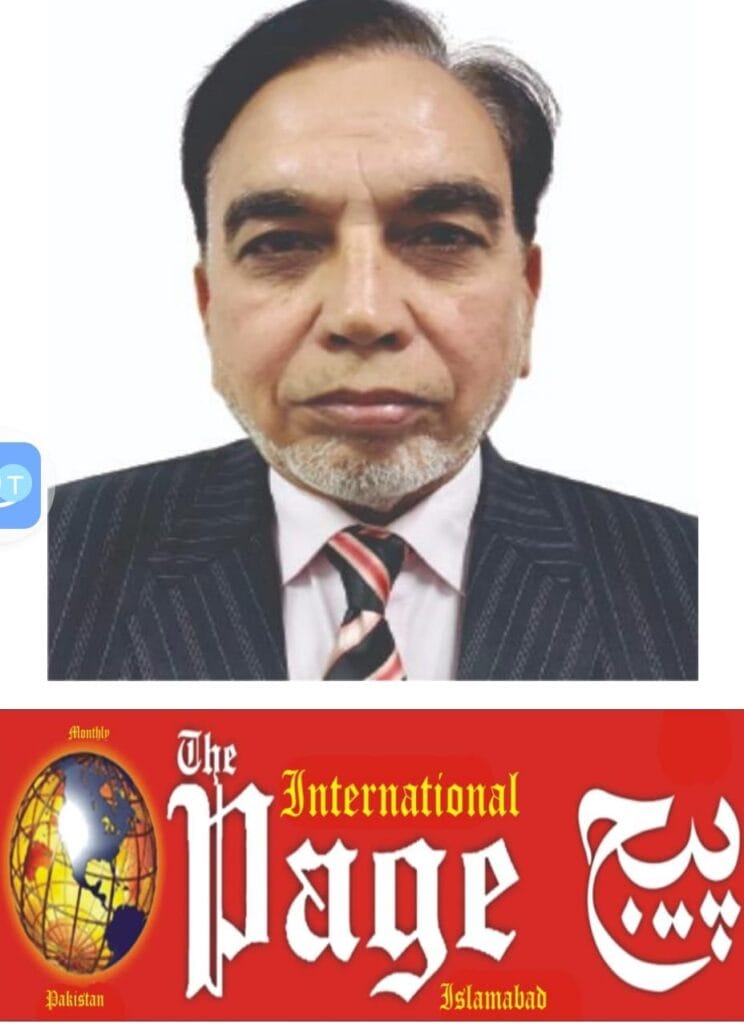Violations of Press Freedom and Journalists’ Rights in Islamabad

Rasheed Ahmad Chughtai
www.rachughtai.com
The recent assault on journalists in Islamabad represents a grave violation of press freedom, human rights, and democratic values. The sanctity of the National Press Club (NPC)—a historic institution symbolizing freedom of expression and media independence—was shamelessly desecrated when Islamabad Police stormed its premises during coverage of protests related to Kashmir.
According to eyewitness accounts, law enforcement officers not only entered the club without permission but also resorted to brutal violence. Journalists were beaten with batons, dragged from the cafeteria, and forcibly removed from the building, despite being engaged in their professional duty of covering events of national importance. Such an incident sets a dangerous precedent, where those entrusted to protect citizens and uphold the constitution instead become instruments of repression.
This attack must be seen not just as a violation of individual rights but as a systematic attempt to silence dissent, control narratives, and intimidate the free press. Freedom of the press is enshrined in Pakistan’s Constitution under Article 19, and internationally guaranteed under Article 19 of the Universal Declaration of Human Rights (UDHR). By storming the NPC, the state has directly violated these legal and moral obligations.
The violation has sparked widespread outrage among journalist unions, civil society, human rights defenders, and political activists. Many view the assault as part of a broader campaign of shrinking civic space, where dissenting voices are marginalized, silenced, or punished.
In this context, it is imperative that:
- The National Press Club must categorically reject any superficial government apology, as mere statements cannot compensate for such violence and humiliation. Accountability must precede reconciliation.
- A “Black Day” should be declared by the press fraternity nationwide, symbolizing unity against state oppression and demonstrating that any attack on one journalist is an attack on the entire media community.
- Independent investigation committees involving representatives from journalist unions, human rights bodies, and legal experts should be formed to probe the incident. Findings must be made public, and those responsible—regardless of rank or affiliation—must face disciplinary and legal consequences.
- International journalist federations, human rights organizations, and diplomatic missions in Islamabad should be briefed about the incident to ensure the global community is aware of these violations. The targeting of journalists is not merely a domestic issue but one that undermines Pakistan’s international standing and democratic commitments.
This is not an isolated episode. In recent years, Pakistan has witnessed an alarming rise in censorship, media blackouts, forced disappearances of journalists, online harassment, and physical intimidation. From press conferences being disrupted to TV channels being taken off-air, the space for independent media is shrinking at a dangerous pace.
The assault at the National Press Club should serve as a wake-up call—a reminder that when the press is silenced, democracy itself is endangered. Journalists are the eyes and ears of society; attacking them is akin to blindfolding the nation.
It is the duty of every democratic institution, political leader, and civil society organization to stand firmly with journalists at this critical juncture. Silence or compromise in the face of such blatant repression will only embolden those who seek to undermine fundamental freedoms.
Rasheed Ahmad Chughtai
Chief Editor
The Page International
www.rachughtai.com

